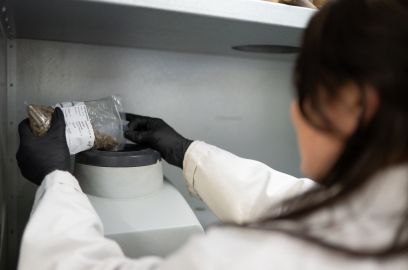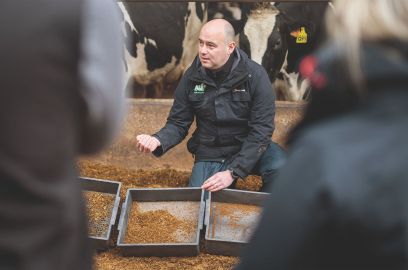NWF Fuels is a leading distributor of fuel oil and fuel cards, delivering over 660 million litres across the UK.
Visit the Fuels website
660m
Litres per annum
308
People
30
Depots
177
Tankers
Our Fuels locations
Review of the year
Fuels experienced mixed market conditions with strong demand for domestic heating oil as the relatively low cost of oil reduced the cost of home heating for consumers. By contrast, the demand for commercial diesel and gas oil was subdued, reflecting the general economic environment. The business focused on margin management and cost control. This resulted in a strong overall performance whilst the business was implementing business improvement initiatives and undertaking two acquisitions.
Volumes were in line with the prior year at 660 million litres (2024: 659 million litres). Revenue decreased by 9.7% to £612.3 million (2024:£677.8 million) reflecting the lower oil prices. The average Brent Crude oil price in the year was $75 per barrel compared to $83 per barrel in the prior year. The volatility during the year was relatively low compared to prior years, with a high of $84 per barrel in July 2024 and a low of $64 per barrel in May 2025.
Headline operating profit was £8.4 million (2024: £7.9 million), which resulted in a reported net profit of 1.3p per litre (2024: 1.2p per litre).

Two acquisitions were completed in the year, Northern Energy Oils in Yorkshire on 7 March 2025 and Pinnock Brothers in Berkshire on 30 April 2025. Together, the two acquisitions have added 55 million litres per annum of predominantly domestic heating oil business to NWF’s volumes, representing an increase of approximately 8%. Integration of both businesses into the NWF Fuels network is very well progressed and the businesses are performing in line with plan.
The Fuels business currently provides a service to domestic and SME commercial customers across England and Wales from 30 depots. Historically, the depots have operated as individual businesses which has provided the opportunity to respond flexibly to local market conditions but has made it difficult to deliver improvements in its sales processes and operational efficiency. During FY25, the Group undertook an initiative in its North-West region to centralise its sales and operational activities into a regional hub office whilst maintaining the individual depots as delivery locations. This model allows the Group to enhance its domestic and commercial sales process, provide an improved and consistent customer experience, and utilise its tanker fleet more effectively. Following the successful trial in the North-West of England, this regional operating model is now being rolled out across the rest of the business’ network and will be in place by the end of the second quarter of FY26. Utilising this regional model, the Group believes there is significant opportunity to grow its network and improve its efficiency whilst generating greater synergies from the businesses it acquires. The extensive depot network also provides the opportunity to supply larger, more complex, commercial customers who require reliable service in multiple locations.
With nearly 109,000 customers (2024: 107,000) being supplied across 30 fuel depots in the year (2024: 27), Fuels operates in large and robust markets, and as a business has consistently proved it can effectively manage the impact of volatility in oil prices. The industry remains highly fragmented, with many small operators, which provides NWF with further opportunities to consolidate the market and increase its market share. We continue to closely monitor developments in biofuels such as HVO to ensure the business is well placed to participate in the energy transition of the UK economy.



